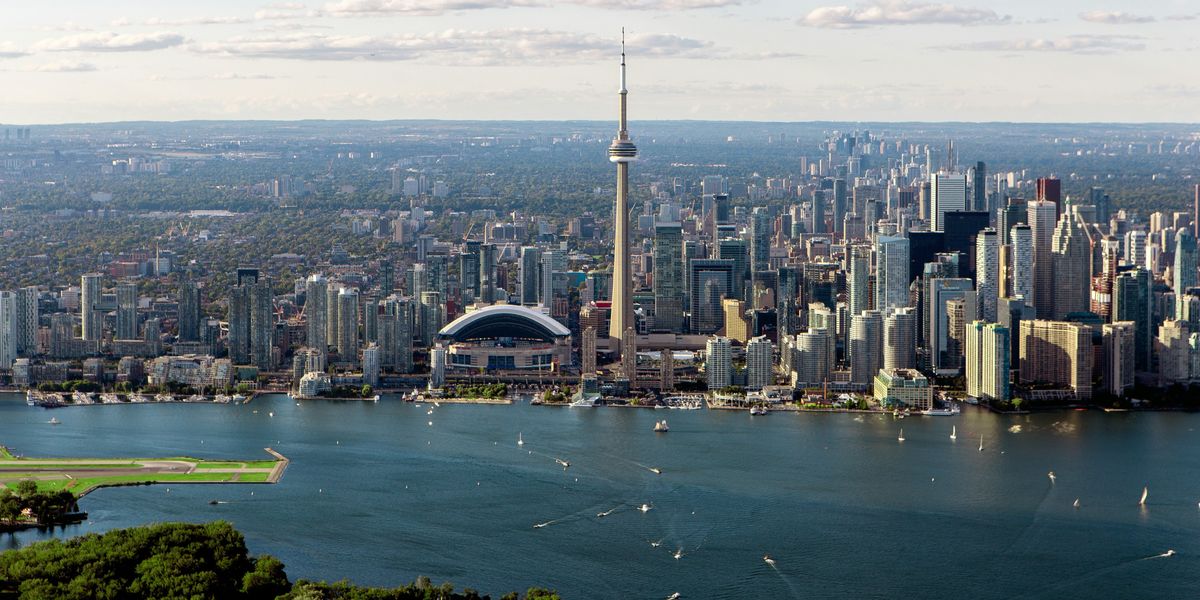While we’re down about the bad traffic and the inconsistent weather, there are reasons to be positive about Toronto. It was just ranked among the top cities in the world — and it beat out some seriously impressive spots.
The 6ix was ranked ahead of cultural icons like Chicago, Berlin, Singapore, Perth and Madrid, to name a few, to finish in the top 20 of the Oxford Economics Global Cities Index for 2025.
Cities are scored across five different categories:
- Economics
- Human capital
- Quality of life
- Environment
- Governance
Oxford Economics ranked Toronto in the 20th spot overall — the highest-scoring Canadian city — describing it as the nation’s “premier centre” for business, finance, culture, and art.
Vancouver and Montreal both also ranked in the global top 50.
Oxford Economics says that Toronto not only has one of the most historically stable economies in North America, but also remains one of the fastest-growing cities in the region.
What’s more, to achieve this status, the city hasn’t sacrificed its strong GDP (US$451 billion, US$62,800 per person) and employment growth.
The report credits this to Toronto’s consistently high level of immigration, as the city can still attract some of the best talent in the world. This has seen the GTA’s population grow to 7.2 million.
While new federal immigration targets have started to slow the pace of population growth from 2022 to 2024, Toronto still has the largest share of foreign-born residents out of any city in North America, according to the index.
The reason for this inward migration is that Toronto is still Canada’s financial and educational hub.
The Big Five banks of Canada (BMO, CIBC, RBC, Scotiabank and TD) are all headquartered in the city’s Financial District, and Bay Street still has a significant gravitational pull.
Toronto is also home to the headquarters of some of Canada’s biggest media companies and government institutions.
The city also has several universities, which are leaders in research and innovation and boost migration to Toronto.
While Toronto’s population boost has positively impacted its human capital score, it might have negatively affected its quality of life score.
Oxford Economics says the influx of new residents has strained the GTA’s already pricey housing market. With supply unable to keep up with demand there’s record-high unaffordability and the people of Toronto spend more of their income on housing than residents of nearly every other city in the world, Oxford Economics reveals.
“While the government of Ontario has increased its targets for new housing construction to help abate this crisis, improvements in affordability will take several years,” the ranking explains.
Despite this, Toronto still ranks high when it comes to quality of life thanks to its high life expectancy and income equality.
The city didn’t score too well when it comes to the environment, though. It ranked 224th overall in that category, due in part to the city’s “significant” temperature anomalies, including summer heatwaves, which increase the risk of it being impacted by climate change.
Here’s a closer look at the full ranking:
Top 50 of Oxford Economics’ Global Cities Index 2025
- New York
- London
- Paris
- San Jose
- Seattle
- Melbourne
- Sydney
- Boston
- Tokyo
- San Francisco
- Los Angeles
- Washington, D.C.
- Dublin
- Stockholm
- Seoul
- Zurich
- Oslo
- Copenhagen
- Dallas
- Toronto
- Singapore
- Munich
- Brisbane
- Chicago
- Geneva
- Denver
- Amsterdam
- Atlanta
- Berlin
- Houston
- Perth
- Luxembourg
- Philadelphia
- Brussels
- Minneapolis
- Vienna
- Vancouver
- Helsinki
- Hamburg
- San Diego
- Phoenix
- Basel
- Montreal
- Madrid
- Miami
- Tel Aviv
- Austin
- Bern
- Gothenburg
- Portland
While there can be much to complain about, we’re so lucky to live in this fantastic city. Take a bow, Toronto!
Love this? Check out our Narcity noticeboard for details on jobs, benefits, travel info and more!













